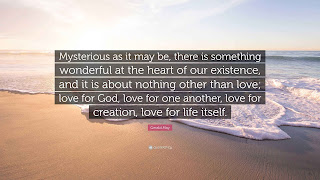BEYOND WINTER: The Irrelevant Memories of An Old Janitor—THE WORLD IS MY FIELDHOUSE [M, 4-28-25]
There was an article recently [4-22-25], in The Indiana Daily Student, about the dirty and disgusting conditions student athletes have to put up with in The Harry Gladstein Fieldhouse, the home of Indiana University track and field sports. I took that personally, since I was once the custodian there.
It wasn’t The Harry Gladstein Fieldhouse then. It was just the “new” field house, a stopping place between the “old” fieldhouse-- --and Assembly Hall, “The house that Bob Knight built.”
The “old” fieldhouse--where I did the required PE course in my frosh year, and where we all filled out fourteen 3x5 cards and stood in long lines to register for classes--is now named for Bill Garrett, All-American IU basketball player and the first black to play regularly in the Big 10
When Assembly Hall, now named for philanthropist Simon Skjodt, was completed, the track and field teams felt good about inheriting the “new” fieldhouse, because it was a clean, beautiful facility. I know it was, because that is the way I left it.
Apparently, the new janitor didn’t do as good a job as I did. Of course, it was 64 years ago that I left the job, and so maybe the deterioration wasn’t just because of my custodial replacements.
I had worked for George McClain, the director of the IU buildings and grounds division, during summers, when I was an undergrad student. When Helen and I got thrown out of Dallas for letting black kids come to the community center we directed, and I could not continue at the Perkins School of Theology at SMU, we moved back to Bloomington. George put me back on his payroll as the custodian for the new fieldhouse.
I assumed that I was done with ministry at that point. I was good at janitorial work, and I got to hang around the basketball team. I had to use one of those wide dry mops on the playing floor each day before practice. I’d make a point of finishing just before the arrival of the players and coach Lou Watson, the former assistant and successor to the great Branch McCraken, thinking that if they were ever a player short for scrimmaging, Lou would do the logical thing and have me play. Turns out that Lou wasn’t all that logical.
There was a sort of combination office and supply room in that fieldhouse where I ate the lunch Helen had packed for me. It was a lonesome time, eating my carrot sticks and spam sandwich by myself in the midst of mops and brooms, so I took a book to read. I selected which book the same way I do now when I want a book for a doctor’s waiting room—by size, something to fit a coat pocket or a lunch sack.
One day, I pulled from my lunch sack the small book I had grabbed from our bricks and boards book shelves on my way out the door and started reading…about how to be a better preacher, as extolled by Alexander Mackay.
I thought…wait a minute. I don’t need this book anymore… but I kept on reading. I began to compare what Mackay was saying with my three years as a preacher while I had been an IU undergrad.
When it came time to go back to my mopping and sweeping, I wanted to continue that conversation with Mackay instead. I realized that I wasn’t through with the ministry yet. Or maybe, the ministry wasn’t through with me yet.
I was a bit disappointed when I told George McClain that I had to give up my career as custodian at the new fieldhouse so that I could go back to seminary, this time at Garrett, at Northwestern U. George didn’t seem disappointed that I was giving up janitorial work. “You’ll be a great preacher,” he said.
Maybe I didn’t leave the new fieldhouse as clean as I thought I did.
John Robert McFarland
I decided on The World
Is My Fieldhouse as the title for this column, because of John Wesley’s
phrase, “The world is my parish.” Too cute? Not relevant enough? Well,
sometimes, titles that communicate clearly just don’t come easily.




















